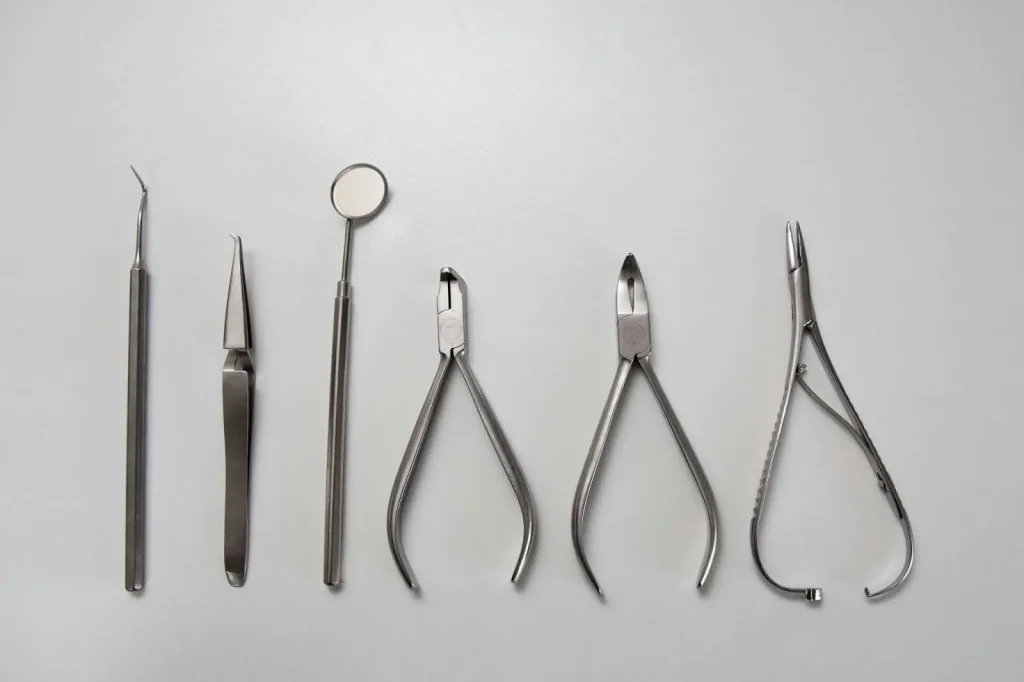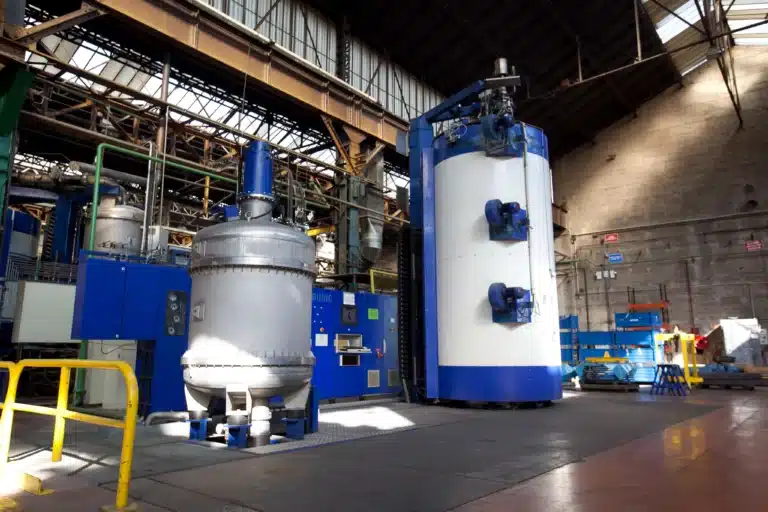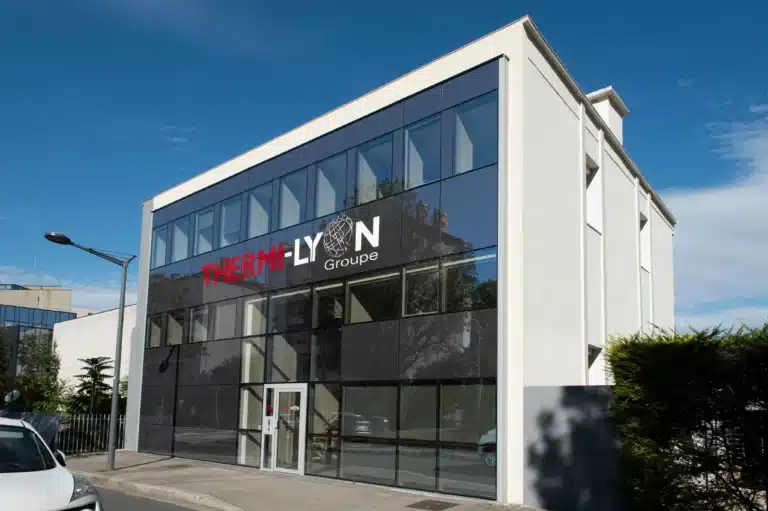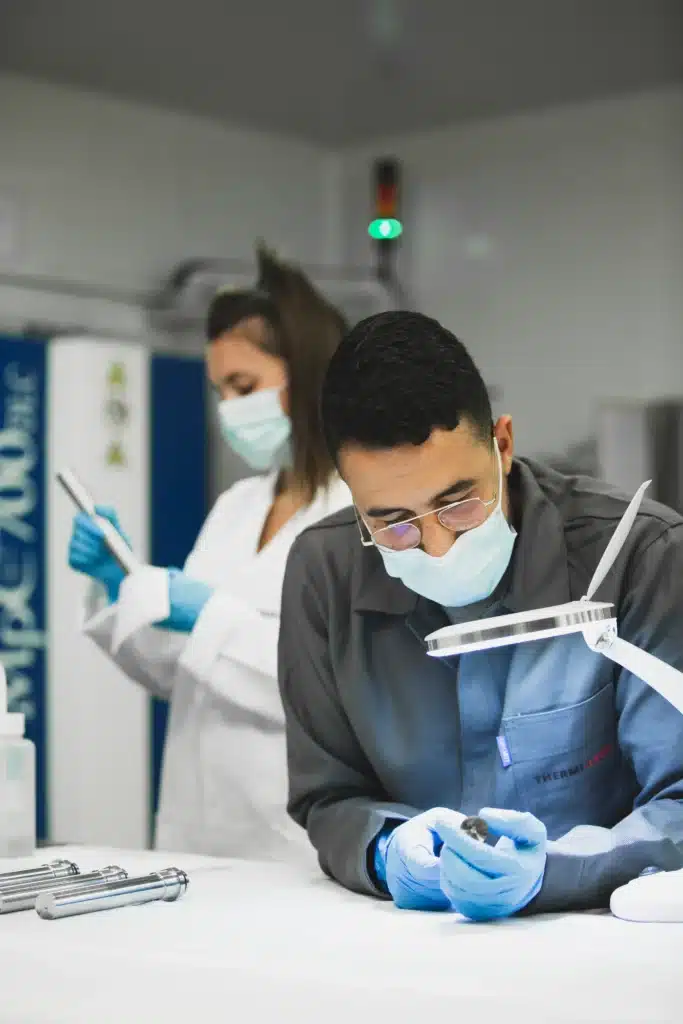A biocompatible coating must integrate perfectly with the natural organism in which it is found, without degrading or impacting it in any way. Biocompatible materials are essential in the medical and food industries, where treated products inevitably come into contact with the human body. The Thermi Lyon group has had several tests carried out on its entire Platin-Medi range of products for medical use, to qualify solutions as biocompatible.

What is a biocompatible coating?
As the name suggests, the aim of a biocompatible coating is to integrate perfectly with a biological organism without damaging it. In other words, the biocompatibility of a material refers to its ability not to degrade the natural environment in which it is found. This property is particularly important in a number of sectors, including the medical and food industries. Indeed, it seems essential that the tanks in which products intended for consumption are stored should be free from components that are toxic to the human body. The same applies to prostheses implanted in the body, for example. For this reason, the design of a biocompatible coating is not improvised and must meet a number of requirements: to obtain this certification, several tests are essential.
An ideal solution for medical devices
Biocompatible coatings are primarily used for medical devices. Since dental implants, hip prostheses, arterial stents and even syringe needles come into contact with the human body, it's vital that the materials they're made of have no impact whatsoever on the patient's body.
There are various biocompatible materials, including DLC coatings and titanium, for example. The latter adapts perfectly to human physiology, and does not damage tissue, bone or blood. In fact, the Thermi Lyon group has developed a specific alloy based on this chemical element: the pink titanium. Pink titanium is used for dental implants. Entirely biocompatible, it replaces traditional gold devices, which are particularly conspicuous, and has a much more natural appearance.
Choosing a biocompatible coating to suit your needs
Selecting a biocompatible solution involves taking into account the nature and duration of contact with the organism. This may be limited, temporary or permanent. Implantation tools, ancillaries or syringe needles, for example, fall into the former category, while hip prostheses or dental implants remain in the body permanently. Needs differ according to this parameter, which is why numerous tests have been carried out to qualify biocompatible materials according to their end use.
5 different tests to qualify biocompatible coatings
To guarantee the biocompatible nature of the solutions it offers, the Thermi Lyon group has carried out several tests on the 5 products in its medical range, Platin Medi medical range: MAGSLIDE DLC coating, PLATiN® MEDI ZrN, PLATiN® MEDI BETA, and Pink Titanium. All have undergone regulatory testing to ISO 10993-1-3rd edition, January 8, 2003, by a COFRAC-certified French laboratory.
In practice, each solution in the Platin Medi range was subjected to 81 different tests, depending on the location and duration of its contact with the human body. Depending on whether the materials interact only at the skin surface, enter the body externally or remain implanted for life, these tests are divided into 5 categories: Cytotoxicity, 10993-5, Sensitization, 10993-10, Irritation or intradermal reaction, 10993-10, Acute systemic toxicity, 10993-11 and Subacute toxicity, 10993-11. While insertion tools do not present as many risks as implants or prostheses, a total of 405 tests were carried out to certify all products in the Platin Medi range, at a cost of around 150,000 euros. As the medical environment imposes strict safety regulations, this investment is in line with the Thermi Lyon Group's commitment to offering its customers reliable, top-quality solutions. These certifications set the group apart from other companies unable to offer such services.
The biocompatibility of a material refers to its ability not to damage the biological environment in which it is used. This is a particularly important property for those working in the medical field, where the tools and implants they use on a daily basis must respect the human organism without risking damage. To guarantee the biocompatible nature of the coatings in its Platin Medi medical range, the Thermi Lyon Group has had its products subjected to over 400 tests by a COFRAC-certified French laboratory. This approach also enables us to stand out from more standard heat treatment providers, who are not adapted to the medical environment.





